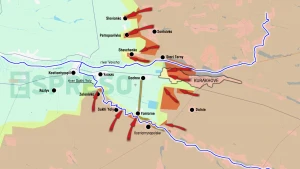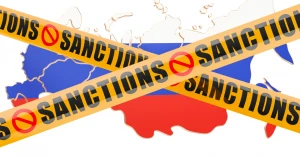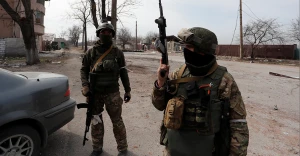
Restoring Ukraine: mistakes to consider
Russia's war against Ukraine has been going on for a long time, in case anyone has forgotten, and we have had many opportunities to learn from our mistakes
As you can see, our military has learned all the lessons of the failures of 2014-15, and today they are surprising the world with their successes. However, have we learned the mistakes of post-war reconstruction? To some extent, I was involved in this process in the Donetsk region, so I will share my thoughts.
Mistake 1 - international assistance. Honestly, as I recall, I have never seen a bigger mess and inefficiency than international aid in Donbas in my life. I used to call it 'donor anarchy'. The government took an ostrich-like position of 'welcome any help', and as a result, there was no policy, no coordination of international assistance. Everyone did what they wanted. As a result, only 5 out of 12 controlled districts of the Donetsk region received aid. Donors were constantly double- and even triple-funding the same thing.
“This is 'donor anarchy'. The government took an ostrich-like position of 'welcome any help', and as a result, there was no policy, no coordination of international assistance.”
Mistake 2 - management and bureaucracy. The situation often reached pure absurdity. For example, we had funds in the regional budget to restore the bridge in Sloviansk, but the Ministry of Infrastructure refused to transfer it to our balance sheet. This lasted for almost 2 years. I won't even comment on the restoration of other facilities. The bureaucracy was transforming and leveling everything around.
Mistake 3 - walls, not people. Everyone thinks that recovery is about buildings and infrastructure. But in reality, reconstruction is about people and their lives. It's not enough to give people the keys to a new home. You need to take into account that people have experienced serious trauma and need psychological help. Then housing is not the main thing, the main thing is work. And the restoration of businesses and industries should, to a large extent, even precede the restoration of housing.
Mistake 4 - stigmatization of victims and 'socialism'. The state, seeking to atone for the tragedy, is beginning to fall into hellish socialism, and is endlessly hooking people on various handouts. The victims are actually formed into a separate social group as 'Chernobyl victims', and people who begin to accept this identity treat themselves as victims for the rest of their lives, constantly demanding help.
“The state, trying to atone for the tragedy, begins to fall into hellish socialism, and endlessly hooks people on various handouts.”
Good international experience always shows that the issue of reconstruction is handled by either a separate ministry or a state agency. It needs to be created now, despite the fact that the war is still far from over. Such a structure should become a single point of entry and exit for recovery policy. Key areas of work of the agency:
1. Negotiations on attracting assistance. This is a long process. For international organizations, 'emergency assistance' means waiting for 8 months or more. Therefore, a dialogue with potential donors should begin today, familiarization with their requirements (everyone has their own, so you know the Red Cross and the UN do not sit at the same table) and so on.
2. Registers. We need to create a lot of registers: of displaced people, destroyed housing, infrastructure, businesses, etc. This is necessary to have clear calculations and logic. I'm sorry, but what the prime minister is saying about our losses is from the ceiling.
3. Legislation and policy. Restoration does not fit into the standard working conditions of the government. We need new rules and regimes to respond in a manual mode and create green roads for priority tasks. We need to start developing all this today. Because every day of delay is a day that a Ukrainian family spends in terrible conditions.
“We need new rules and regimes to react manually and create green roads for priority tasks. All this needs to be developed today.”
4. Coordination of volunteers and benefactors. I have always considered it a symbol of the absence of the state that our volunteers and benefactors live in a parallel reality to the state. Every man for himself, and as a result, the effect is half as good. After the war, volunteers' efforts will be directed to reconstruction, and there will be chaos again when efforts are duplicated.
It is important to start taking steps to rebuild today. Otherwise, just like in 2015, the war will be on hold, and we will need a lot of time to get things going. Moreover, there is a story I once wrote about - we did not realize 300 million euros of non-emergency assistance from the European Investment Bank, stupidly because there was no one to do it.
There are even more risks in recovery related to corruption. We are already suffering from this disease, but I am afraid that the chaos in the recovery policy may turn into corrupt looting.
Notes. I published this text a year ago on my Facebook page. Has it lost its relevance?
About the author. Victor Andrusiv, political and public figure, analyst and publicist.
The editors do not always share the opinions expressed by the blog authors.
- News












































